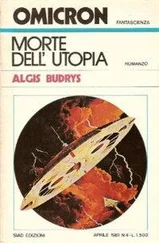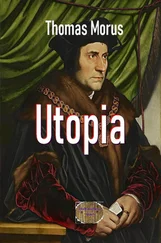1 Series title
2 Title page Utopia Mark Stephen Jendrysik polity
3 Copyright page
4 Acknowledgments
5 Introduction
6 1What is Utopia? What is Utopian Political Thought? Homo utopicus: The Mindset of the Utopian Animal Defining Utopia/Utopianism Types of Utopia Defining Utopian Political Thought Utopia and Politics Are Utopia and Utopian Political Thought Western Manifestations?
7 2Utopianism before Utopia Sparta as Utopian Myth/Model Plato’s Republic: The Great Thought Experiment The Problem of Total Commitment The Bible as Utopian and Dystopian Inspiration
8 3Inventing Utopia Utopia as Critique The Just Society Religion and Politics in Utopia More’s Utopia as Political Thought
9 4Utopia and the Age of Revolution Utopian Dreaming in the English Revolution Gerrard Winstanley and the Diggers James Harrington’s Immortal Commonwealth The American Revolution and Thomas Paine Jean-Jacques Rousseau and the French Revolution The Problem of Utopia and Revolution
10 5Utopia and Modernity Varieties of Nineteenth- and Early Twentieth-Century Utopian Thought Bellamy’s Disciplined Utopia Morris’s Pastoral Utopia Wells’s Platonic Utopia Gilman’s Feminist Utopia Twentieth-Century Variants on the Theme Utopia as a Process Toward Dystopia
11 6Utopia and/as Ideology Marx/Marxism as Utopian Ernst Bloch: Hope and Dreams Libertarianism as Utopian Ideology Designing Libertarian Utopia Utopia as Liberation Whither Utopian Thought?
12 7From Utopia to Dystopia Dystopian Themes: Freedom/Isolation/Hidden Evil Zamyatin’s Machine State Huxley and Inhuman Stability Orwell and the Nihilism of Power Atwood and Dystopian Isolation The Dystopian Post-human The Anthropocene as Dystopia The Necessity of Dystopian Political Thought
13 8Does Utopia Have a Future? The Status of Utopia The Future of Utopian Theory What is to be done?
14 References
15 Index
16 End User License Agreement
1 Cover
2 Contents
3 1 What is Utopia? What is Utopian Political Thought?
1 ii
2 iii
3 iv
4 vi
5 vii
6 viii
7 1
8 2
9 3
10 4
11 5
12 6
13 7
14 8
15 9
16 10
17 11
18 12
19 13
20 14
21 15
22 16
23 17
24 18
25 19
26 20
27 21
28 22
29 23
30 24
31 25
32 26
33 27
34 28
35 29
36 30
37 31
38 32
39 33
40 34
41 35
42 36
43 37
44 38
45 39
46 40
47 41
48 42
49 43
50 44
51 45
52 46
53 47
54 48
55 49
56 50
57 51
58 52
59 53
60 54
61 55
62 56
63 57
64 58
65 59
66 60
67 61
68 62
69 63
70 64
71 65
72 66
73 67
74 68
75 69
76 70
77 71
78 72
79 73
80 74
81 75
82 76
83 77
84 78
85 79
86 80
87 81
88 82
89 83
90 84
91 85
92 86
93 87
94 88
95 89
96 90
97 91
98 92
99 93
100 94
101 95
102 96
103 97
104 98
105 99
106 100
107 101
108 102
109 103
110 104
111 105
112 106
113 107
114 108
115 109
116 110
117 111
118 112
119 113
120 114
121 115
122 116
123 117
124 118
125 119
126 120
127 121
128 122
129 123
130 124
131 125
132 126
133 127
134 128
135 129
136 130
137 131
138 132
139 133
140 134
141 135
Mark Stephen Jendrysik
polity
Copyright © Mark Stephen Jendrysik 2020
The right of Mark Stephen Jendrysik to be identified as Author of this Work has been asserted in accordance with the UK Copyright, Designs and Patents Act 1988.
First published in 2020 by Polity Press
Polity Press
65 Bridge Street
Cambridge CB2 1UR, UK
Polity Press
101 Station Landing
Suite 300
Medford, MA 02155, USA
All rights reserved. Except for the quotation of short passages for the purpose of criticism and review, no part of this publication may be reproduced, stored in a retrieval system or transmitted, in any form or by any means, electronic, mechanical, photocopying, recording or otherwise, without the prior permission of the publisher.
ISBN-13: 978-1-5095-3492-0
ISBN-13: 978-1-5095-3493-7 (pb)
A catalogue record for this book is available from the British Library.
Library of Congress Cataloging-in-Publication Data
Names: Jendrysik, Mark Stephen, author.
Title: Utopia / Mark Stephen Jendrysik.
Description: Cambridge, UK ; Medford, MA : Polity, 2020. | Series: Key concepts in political theory | Includes bibliographical references and index. | Summary: “Mark Jendrysik examines the multifarious ways utopians have posed the question of how humans might realize truly human values”-- Provided by publisher.
Identifiers: LCCN 2019033282 (print) | LCCN 2019033283 (ebook) | ISBN 9781509534920 (hardback) | ISBN 9781509534937 (paperback) | ISBN 9781509534944 (epub)
Subjects: LCSH: Utopias.
Classification: LCC HX806 .J364 2020 (print) | LCC HX806 (ebook) | DDC 335/.02--dc23
LC record available at https://lccn.loc.gov/2019033282
LC ebook record available at https://lccn.loc.gov/2019033283
Typeset in 10.5 on 12pt Sabon
by Fakenham Prepress Solutions, Fakenham, Norfolk NR21 8NL
Printed and bound in Great Britain by CPI Group (UK) Ltd, Croydon
The publisher has used its best endeavours to ensure that the URLs for external websites referred to in this book are correct and active at the time of going to press. However, the publisher has no responsibility for the websites and can make no guarantee that a site will remain live or that the content is or will remain appropriate.
Every effort has been made to trace all copyright holders, but if any have been overlooked the publisher will be pleased to include any necessary credits in any subsequent reprint or edition.
For further information on Polity, visit our website: politybooks.com
The roots of this book go back a very long way. My father, Stephen Jendrysik, the longtime president of the Edward Bellamy Memorial Association, first introduced me to the life and work of our hometown utopian. Isaac Asimov encouraged my utopian hopes and dreams when I met him soon after my tenth birthday. I would like to thank my colleagues from the Society for Utopian Studies. I have shared many interesting and enlightening discussions over the last fifteen years with Lyman Tower Sargent, Gregory Claeys, Alex MacDonald, Naomi Jacobs and Claire Curtis. Most of what makes up this book was presented at the society’s conferences. My colleague and friend Ted Pedeleski took the time to read several drafts of the book and provided valuable feedback. The insights of three anonymous reviewers and the editors from Polity, George Owers and Julia Davies, improved the book immeasurably. Students in my classes on utopian thought at the University of Virginia, Bucknell University, the University of Mississippi and the University of North Dakota provided insights that inform every page. And, as ever, Kiara Kraus-Parr inspired me to do my best.
Читать дальше












